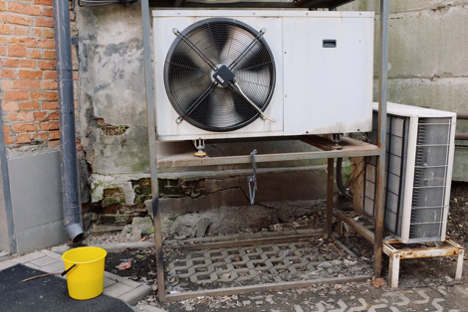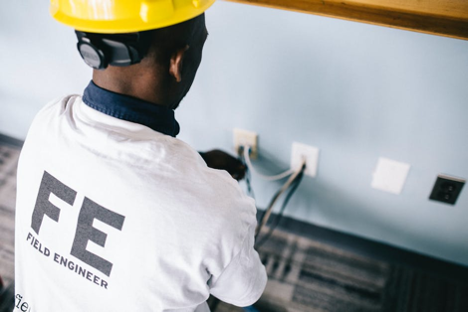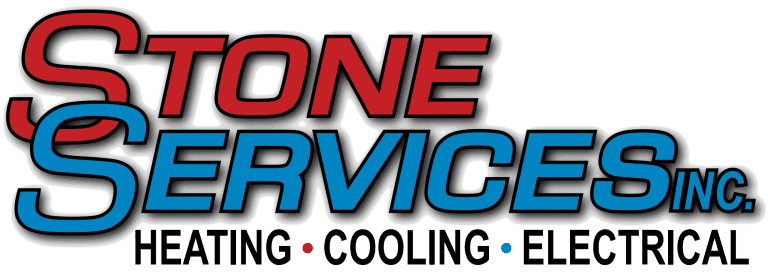
Having the ability to regulate the temperature in your home is a crucial factor throughout the entire year. During the summer months, turning down the temperature helps to reduce the accumulation of heat in your home. When winter comes, you’ll be faced with cold nights. At this time, increasing temperature with the use of a furnace ensures you and your family can feel warm.
While portable solutions are available, these can be inconvenient to move around consistently. People are turning toward HVAC systems as a more convenient and powerful solution. The HVAC market is expected to reach a worldwide value of $367.5 billion by the year 2030. Over 151 million new HVAC units are estimated to be sold within the year 2024. Whether looking to install a new HVAC system or get an existing one repaired, it is important to understand how they work, as well as how to find the right service agent. This page provides more details on heating and air systems. The page also provides some insight to help with determining which HVAC experts in local areas are the best options to consider.
The specific mechanics behind a heating and air conditioning system depends on the parts used, the model, and the installation method. In the majority of cases, homeowners tend to opt for HVAC systems. This type of system consists of two main parts – an air conditioning unit, as well as a furnace.
The air conditioning unit is responsible for drawing hot air out of the home while pushing cooler air in. This unit helps to provide better air circulation throughout the building and can assist in improving the overall quality of the air. The furnace, on the other hand, rather focuses on increasing the temperatures in the building. The furnace pulls air into a structure, moves the air over a heated unit, and then blows the air back into the room.
While these are the basic factors behind a heating and air conditioning system, some models feature advanced technologies. The addition of newer technologies may help to improve the overall efficacy, as well as add additional functions to the system.

There are different names that people can use to refer to heating and air systems. Generally, however, the most common name is HVAC. HVAC is a term that summarizes “heating, ventilation, and air conditioning.” In many cases, people will use this term to refer to a complete heating and cooling system installed in a building. It is important to note that different units form part of a heating and air conditioning system. When only one of the systems is installed, then it technically does not qualify as HVAC. For example, a furnace generally refers to the “heating” part of HVAC. On its own, however, it lacks the cooling and air conditioning features of the complete HVAC system.
Both central heat and forced air units are popular when looking at the installation of an HVAC solution. There are, however, differences in how these two work. With a forced-air system, an expert will install ducts in the areas the HVAC should cover. The HVAC system will also consist of multiple vents. The HVAC system then pushes air that goes through the temperature-controlled system through the vents and ducts. With a central heating system, things are a bit different. There is a specific location where the heated air is produced. Once the system creates heated air, it then starts to send it to specific areas of the building.
Since there are different configurations you can use when setting up an HVAC system, it is important to always consider whether gas or electricity will be used. When looking at a central AC unit, it is important to note that all models, regardless of the brand or construction, will use electricity. These systems do not run on gas like some of the other AC units that are available.
When installing an HVAC system, it is important to note that the air conditioning unit is separate from the furnace. Even though both of these systems use the same ventilation and distribution parts, there is no direct connection between the two units. Thus, a furnace cannot provide the building with air conditioning functions. This particular feature is provided by a separate unit.
The expected lifespan of an HVAC system depends on a couple of factors. In most cases, these systems tend to last for a period of 15 years on average. With proper maintenance, it is sometimes possible to extend the lifetime to a period of up to 25 years.
One misconception that some people have is that an HVAC system only increases or decreases temperature. While these are the two primary functions, there is another important function. An HVAC system helps to enhance the overall air quality inside the building. The ventilation system that forms part of the HVAC ensures air can effectively circulate. It also helps to reduce odors, reduce the risk of stagnation in the air, and even helps with the regulation of moisture levels in the environment.

An HVAC assessment refers to a professional evaluation of the multiple components that form part of the system. In most cases, you will need to get someone to do an assessment on a regular basis – usually about once every year. During the assessment, the HVAC expert has a checklist that they work from. They will check various elements of the system to determine if maintenance or repairs are needed. Apart from checking for faults, the expert also considers any factors that may increase the energy usage of the HVAC system. In these cases, they recommend fixes that help to save you money in the process.
It is generally not advisable to evaluate or assess your own HVAC system, especially if you do not have expertise in this field. Experts who have worked in the industry for a long time are able to quickly evaluate the system and report faults.
It is important to note that not all AC units actually use gas. If you have a central air conditioning system, then the unit can produce cool air without the need for gas. On the other hand, if you want to increase the temperature during the winter months, then you will need gas. The unit will cease to work in this case. If your system runs out of gas, it may blow cold air into the building instead of heated air.
It is important to understand the expected lifespan of these units. An HVAC system is generally estimated to last between 15 years and 25 years. If your entire system was installed together and reaches this age, then you should ensure both the AC and the furnace are replaced. In cases where some components are only a few years old, you might want to carefully consider which parts you wish to replace.
The price of a new furnace depends on factors like its size, as well as the amount of coverage you need. When opting for a new unit, the furnace will usually cost between $1,500 and $6,500. This does not include installation costs.
To provide sufficient coverage for a home that measures 1,000 square feet, you need a furnace with a power rating of 60,000 BTU. The average cost for a furnace unit that has this power rating is $3,085.
Since you need a more significant amount of coverage for a 3,000 square foot building, you will need a more powerful furnace. In this particular case, look for a furnace with a power rating of 140,000 BTU. The average cost for such a furnace is around $4,685.
The cost depends on the specific features you are looking for, as well as the type of air conditioner system you prefer. For a 2,000 square feet building, expect to pay anything from $3,000 to $4,000. This would generally include the cost of the unit, as well as installation, the ductwork, and additional accessories.
Many experts choose to price the installation and cost of a heating and cooling system per square foot that needs to be covered. There are several factors that affect the total price per square foot. On average, you should expect to pay between $25 and $60 for every square foot covered with the system.
It depends on how much you use the central air cooling system. The average central AC uses about 3,500 watts of power for each hour it is turned on.
While there are many companies and experts who offer HVAC services, it is important to find the one that meets your needs, fits with your budget, and yields an appropriate experience.
There are a few questions that you can use to determine which HVAC experts are better for your needs. Try to ask the following questions when contacting multiple HVAC servicing companies in your area:
One of the best ways to find a local HVAC expert is to turn to Google. The Google Business listings can give you a good idea of the experts in your area, along with contact details and even reviews from previous customers.
There are several HVAC experts located in a close perimeter to Chapel Hill. If this is the area you need installation, maintenance, or repairs, you will find the top-rated options include Andrew’s Heating & Air, Chapel Hill Heating and Air Conditioning, and Air Secure.
Several contractors in and around Durham specialize in HVAC systems. Among the top-rated, you will find that the following companies stand out based on their existing reviews:
There is no fixed fee structure that you can use to determine the estimated servicing costs in Durham. The major factors that will influence the servicing costs include:
HVAC systems are exceptionally convenient throughout the entire year. These systems help to improve temperature regulation in a home while also enhancing airflow and air quality. When faced with problems, however, the functionality of an HVAC system may be compromised. In this case, you need to turn to a qualified expert to address the problem. Follow the tips we shared in this article to help you identify the expert who can do a great job.
When looking for a place that can help you in your time of need, Stone Services Inc is the way to go. In the heat of the North Carolina summer, or the chill of our winter, an HVAC system problem can quickly turn into an emergency. The Stone family works hard to ensure that they provide quality service and craftsmanship in the industry. Contact us here to learn more.




Copyright © Stone Services Inc. 2020. All right reserved.